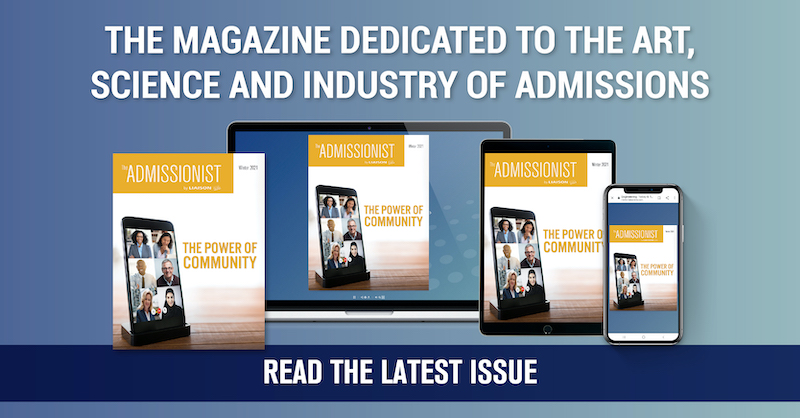Most students are feeling stressed, anxious and uncertain
A survey of more than 1,300 college students revealed that the overwhelming majority are still feeling stress and anxiety (80%) and believe it has affected their academic performance (75%). Most (56%) are also concerned about what “new normal” life will be like. “Students in the survey largely said they have found ways to cope through the tumultuous and isolating period — by turning to Zoom/FaceTime video chats (63%), phone calls (52%), watching TV or movies (40%)… They’ve also sought support. According to the study, more than 65% have reached out for emotional help, including 63% who have used teletherapy, which often provides a more convenient and less overwhelming experience for those who connect. Only 10% utilized mental health services prior to the pandemic.”
Source: University Business
Moody’s upgrades outlook for higher-ed sector
One year after Moody’s Investors Service downgraded its outlook for the higher-ed sector to “negative,” the firm revised it to “stable” on March 22. The decision was based in large part on students’ anticipated return to campuses in the fall and the federal stimulus package. However, the credit-ratings agency addressed the potential for future uncertainty “as institutions reckon with all the ways the coronavirus pandemic has changed the business of academe… Data collected by the federal government and the National Student Clearinghouse Research Center suggest that access-oriented institutions, such as community colleges, could face greater enrollment disruptions headed into the fall of 2021. Similarly, Moody’s forecasts a difficult road ahead as some colleges try to recalibrate their tuition-discount rates.”
Source: Chronicle of Higher Education
Is the pandemic fueling a surge in cheating?
There’s no way to know for sure, but if the use of online “homework help” platforms are any indication, then cheating may have increased dramatically during the pandemic. According to a study conducted by Imperial College London, the number of questions and answers posted to Chegg.com increased nearly 200% between April and August last year. Chegg.com describes itself as a “student-first connected learning platform;” text on its home page says, “Find solutions for your homework.” The study noted that some students appear to be using such sites in ways “not considered permissible” by universities. “While websites like Chegg and Course Hero aren’t designed for cheating — they’re marketed as a place for students to get help — they do offer a platform for it, experts say. Texas A&M reportedly found more than 800 cases of academic fraud after a faculty member noticed students were finishing complex exams in less than a minute, with some of the information coming from Chegg,” according to a university official.
Source: CNBC
Overall, students are feeling ambivalent about their back-to-campus experiences
Roughly equivalent numbers of students report feeling “somewhat or extremely” satisfied and unsatisfied about different aspects of returning to campus. For example, “43% of those back to campus in some capacity are at least somewhat satisfied with the extent to which they can see friends and meet peers; 38% are at least somewhat dissatisfied.” Regarding their ability to connect with faculty and staff, 40% feel satisfied and 34% feel unsatisfied. “Envisioning life after COVID, nearly one-third ‘never want to take another class via Zoom;’ half responded that while some things about remote learning worked for them, they are ‘anxious to get back to all or more in-person classes…’” However, “9% of the 2,000 undergraduates from 120 colleges surveyed don’t ever want to return to in-person classes.”
Source: Inside Higher Ed

